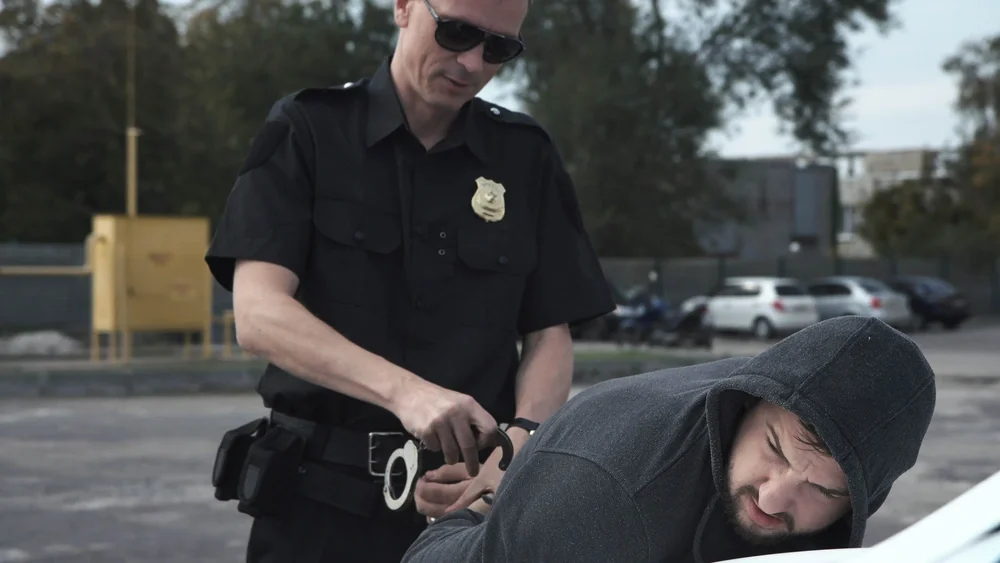
If you’re ever stopped by the police in Australia, you might wonder: Does Australia have Miranda rights? Popularised by American TV shows and films, the Miranda warning has become synonymous with arrest and police questioning. But how does it compare to Australian law?
Unlike the American system, where Miranda rights are deeply tied to constitutional law, Australia relies on a mix of common law principles and state-based legislation to safeguard individual freedoms. This means that while the phrasing may differ, the underlying protections are still focused on ensuring fairness and preventing coercion during police questioning.
In this article, we’ll explore what your rights are during police interactions in Australia, how they differ from those in the US, and why it’s critical to understand them. We’ll also address common questions, such as “Can I refuse to answer police questions in Australia?” and “What does ‘I plead the Fifth‘ mean here?”
What Are Miranda Rights?
Miranda rights originate from the 1966 US Supreme Court case Miranda v. Arizona. These rights require police to inform individuals of the following before interrogation:
- You have the right to remain silent
- Anything you say can be used against you in court
- You have the right to legal representation
- If you cannot afford an attorney, one will be appointed for you
These rights aim to protect individuals against self-incrimination under the Fifth Amendment of the US Constitution. The phrase “pleading the Fifth” comes directly from this.
Does Australia Have Miranda Rights?
The short answer is no, not in the same way the United States does. Australia does not use the term “Miranda rights”, and there is no legal obligation to deliver a standardised verbal warning like in American arrests. However, Australians are still protected by similar legal principles, especially the right to silence and the right to legal representation.
These protections fall under common law, as well as various statutes, including:
Each of these laws works slightly differently across states and territories. For instance, while the core right to silence remains consistent, the procedure for cautioning suspects or admitting evidence obtained during questioning can vary. Understanding which law applies in your state can make a crucial difference in how your rights are exercised.
- Evidence Act 1995 (Cth)
- Law Enforcement (Powers and Responsibilities) Act 2002 (NSW)
- Crimes Act 1958 (VIC)
Your Right to Silence in Australia
In most Australian jurisdictions, individuals have the right to remain silent when questioned by police. This means you generally do not need to answer police questions, except for certain basic identifying details like your name and address.
For example:
- In NSW, the right to silence is recognised under common law and protected under Section 89 of the Evidence Act 1995 (NSW).
- In Victoria, similar protections exist under criminal procedure laws and the Charter of Human Rights.
Important: Remaining silent may lead to an adverse inference in some situations, especially if you’re later charged and your silence is raised in court. This is why it’s vital to contact a criminal lawyer immediately.
Need legal help? KPT Legal’s criminal defence lawyers can provide expert advice before you speak to the police.
Can I Refuse to Answer Police Questions in Australia?
Yes, in most cases, you can. Australians are not legally required to answer police questions beyond providing:
- Your name
- Your address
However, refusing to answer other questions may:
- Raise suspicion
- Be used to draw an adverse inference (in some states, depending on context)
- Impact your defence if you later bring up a fact you refused to mention when first questioned
It’s also worth noting that the circumstances of the questioning—such as whether you were under arrest, being detained for investigation, or speaking voluntarily—can affect how your responses are treated in court. Legal advice ensures that you don’t inadvertently harm your position by speaking too soon.
Still, it is usually safest to remain silent and consult a lawyer before answering any further questions.
What Does “I Plead the Fifth” Mean in Australia?
In the US, saying “I plead the Fifth” refers to invoking the Fifth Amendment right against self-incrimination.
Australia does not have a Fifth Amendment. However, the right to silence plays a similar role. This right is not absolute, however. There are limited exceptions, such as specific regulatory or traffic-related offences where providing certain information is mandatory. Outside these situations, you are entitled to stay silent until legal counsel is available, and exercising that choice cannot legally be used as evidence of guilt. Instead of “pleading the Fifth,” Australians simply refuse to answer questions beyond those legally required. No such phrase is used in Australian law.
That said, nuances depend on the offence, such as:
- Indictable offences: You may be cautioned, and silence may not be held against you
- Summary offences: Less serious, but similar rights apply
Are Miranda Rights Only Used in America?
Yes. Miranda rights are unique to the United States. Other countries, including Australia, the UK, and Canada, offer similar protections through different legal systems, but they do not follow the same script.
In Australia, protections stem from:
- Statute law (e.g., LEPRA 2002 in NSW)
- Common law precedents
- Human rights charters (e.g., Victoria’s Charter of Human Rights and Responsibilities)
Do Police Have to Tell Me My Rights in Australia?
Australian police are required to inform you of some of your rights, including:
- Your right to contact a lawyer before questioning
- Your right to remain silent
- Your right to a support person if you are under 18 or have a disability
However, they are not required to recite a Miranda-style warning, nor are they obligated to inform you about all legal nuances unless you ask or are represented.
What Happens if the Police Keep Asking Questions?

If the police continue questioning you after you’ve chosen to remain silent:
- You can calmly repeat, “I do not wish to answer any questions without legal advice.”
- You have the right to refuse to answer.
- You should request to contact a lawyer as soon as possible.
If you’re feeling pressured, remember: asking for a lawyer does not imply guilt. It’s a protected right.
Do I Have to Go to the Police Station?
Unless you’re under arrest or police have a court-issued warrant, you are not obligated to go to the station. If invited voluntarily, you can:
- Decline the invitation
- Request to delay until legal counsel is available
If you are arrested, you must accompany the police. You should immediately request to contact your lawyer.
Legal Representation and Your Rights
The right to legal representation is a cornerstone of Australian justice. Police must allow you to:
- Call a lawyer before an interview
- Have a lawyer present (in some cases)
- Delay questioning until advice is given
If you cannot afford a private lawyer, you may be eligible for assistance from Legal Aid, though this is not always guaranteed.
Unsure about your rights? KPT Legal offers experienced representation for all criminal matters. Contact us today.
Common Legal Misunderstandings
- Silence means guilt: Not true. Silence is a protected right, although context matters.
- Lawyers make you look guilty: False. Requesting a lawyer is your legal right.
- Police can force confessions: Any confession obtained improperly may be inadmissible in court.
Summary: Does Australia Have Miranda Rights?
While Australia does not have Miranda rights in the American sense, you are protected by strong legal rights:
- You have the right to remain silent
- You can refuse to answer most police questions
- You have the right to legal representation
- You do not need to attend a police station unless you are arrested
- Your rights are grounded in statute and common law, not a constitutional amendment
Understanding these protections is crucial, especially if you are facing arrest or questioning. If in doubt, always speak to a criminal lawyer before making any statements.
Facing charges or a police interview? Contact KPT Legal for expert advice and strong defence representation.
Disclaimer: The above content is for general informational purposes only and does not constitute medical advice. It is not intended to diagnose, treat, cure, or prevent any condition. Information may change over time. Please consult a qualified healthcare professional before making any health or treatment decisions.












